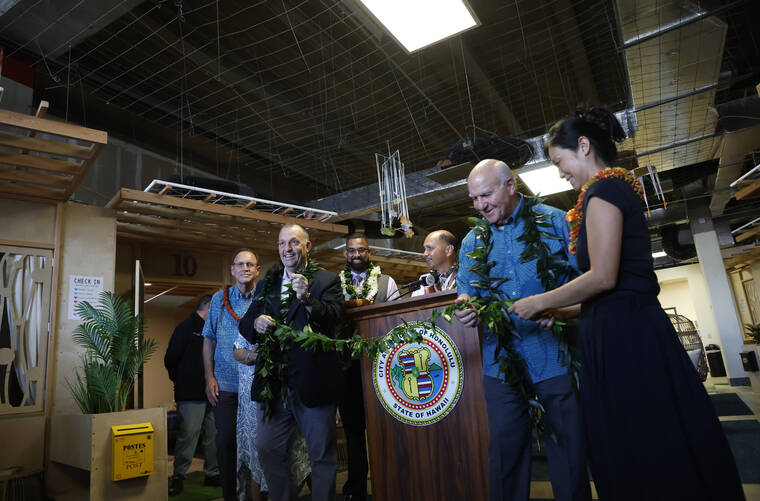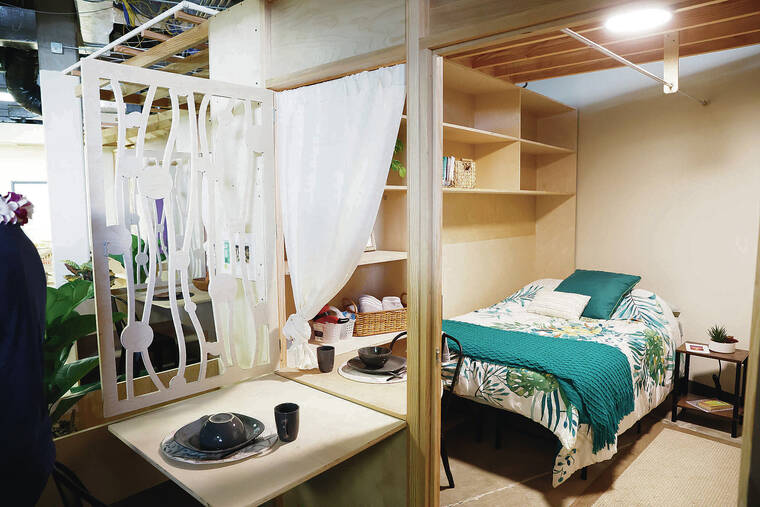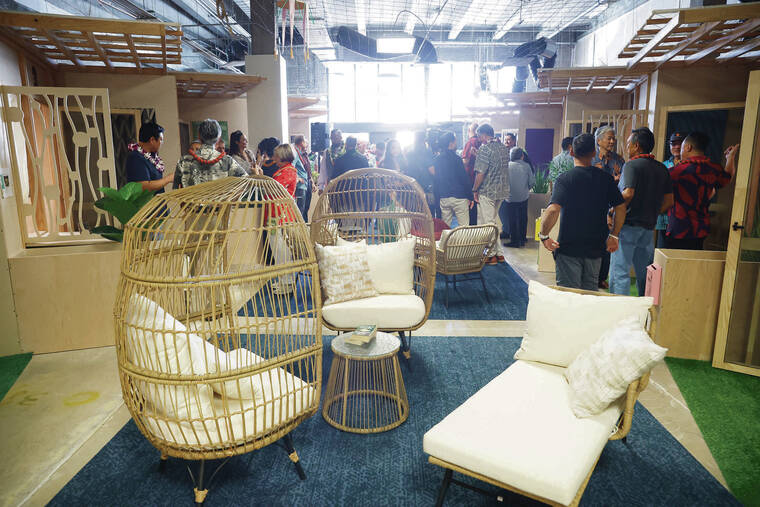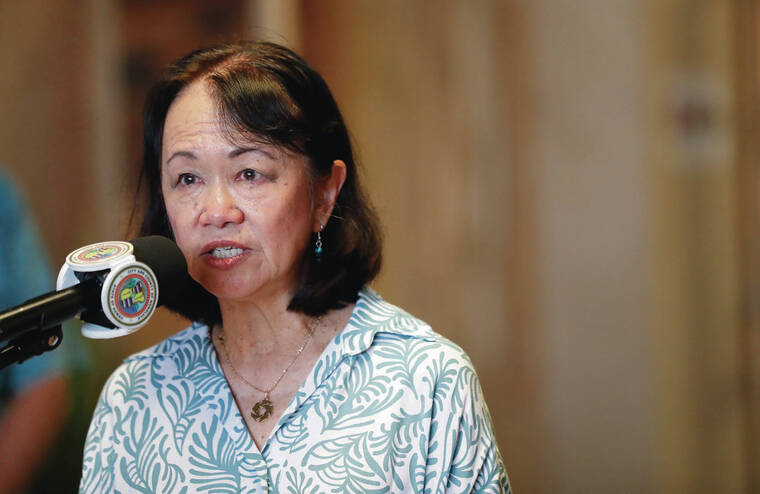The first of 24 homeless patients are scheduled to move into the newest joint state-city homeless shelter of its kind focused on treating mental health, memory and brain injuries.
Iwilei’s Kumu Ola Hou Transitional Center’s 13 single-room structures were built inside an existing, air-conditioned city building that also offers on-site health care with a specific focus on neuroscience.
Each unit can house 24 people at a time for up to 12 weeks with the goal of getting them treated for mental health issues that may have led them to become homeless in the first place, or were developed on the street for a wide range of issues, such as assault and just the stress of being homeless with the constant fear of being
victimized.
Oahu’s homeless “are dying on the streets,” Mayor Rick Blangiardi
told the Honolulu Star-
Advertiser.
Kumu Ola Hou, Blangiardi said, “represents innovation” to address “how sick these people are … and the suffering that’s out there.”
Gov. Josh Green called Kumu Ola Hou’s focus on treating trauma, behavioral and mental health issues a new approach to keep homeless people “from spiraling out of control. … This breaks that cycle for some and will help more.”
The units were built without roofs and laid
out to face their neighbors to encourage social
interaction.
The architect was Ma Ry Kim, co-founder of the Brain Health Applied Research
Institute, or B+HARI.
Before Kumu Ola Hou’s opening, Kim spoke about the project to neuroscientists at Harvard University who plan to follow its progress, she said.
The design of the structures and layout were intentional and backed by science, Kim said.
Kumu Ola Hou will be run by the Institute for Human Services through a state contract.
IHS operates Hawaii’s
largest emergency shelters nearby in an area that continues to be challenged by homelessness.
Kumu Ola Hou is on
Kuwili Street off of Iwilei Road, surrounded by existing and upcoming shelters increasingly focused on medical care and addressing the underlying and persistent causes of homelessness such as mental health and substance abuse.
Kumu Ola Hou specifically will focus on therapy to address trauma and restoring brain function and improving cognitive abilities through new experiences.
“By integrating neuroscience, behavioral health and trauma-informed care, we are addressing the root causes of chronic homelessness, not just its symptoms,” Green said.
With a couple of months of treatment, homeless
clients will be encouraged
to move off the street permanently and into transitional housing, with the help of IHS case managers and social workers.
Blangiardi hopes Kumu Ola Hou will be just the first of more shelters to focus on mental health treatment, one of the main reasons people end up homeless, remain on the street and continue to generate fear, compassion and concerns for their safety by the public and their elected leaders.
Kumu Ola Hou went up inside Iwilei Center after the city bought it in 2024 to build 2,000 affordable housing units along the city’s Skyline rail system when it reaches Iwilei.
Groundbreaking for the Iwilei-Kuwili rail station has been tentatively scheduled for 2028.
By this summer, city officials plan to open three more shelters in the Iwilei Center complex for a total of 100 beds.
Two will be managed by Mental Health Kokua, and the third also will be managed by IHS.
All of Kumu Ola Hou’s one-room units were built out of locally bought and
recycled products.
When Kumu Ola Hou needs to move out to make room for affordable housing, Anton Krucky — director of the city’s Department of Community Services — said each unit was designed to be taken down quickly and rebuilt somewhere else for homeless housing.
“We’ll relocate when rail comes through,” Krucky said.
IHS Executive Director Connie Mitchell, a psychiatric nurse by training, eagerly embraced Kumu Ola Hou’s focus on addressing mental health and signed up to operate it.
“It was a no-brainer for me,” Mitchell said. “It really is the way.”










